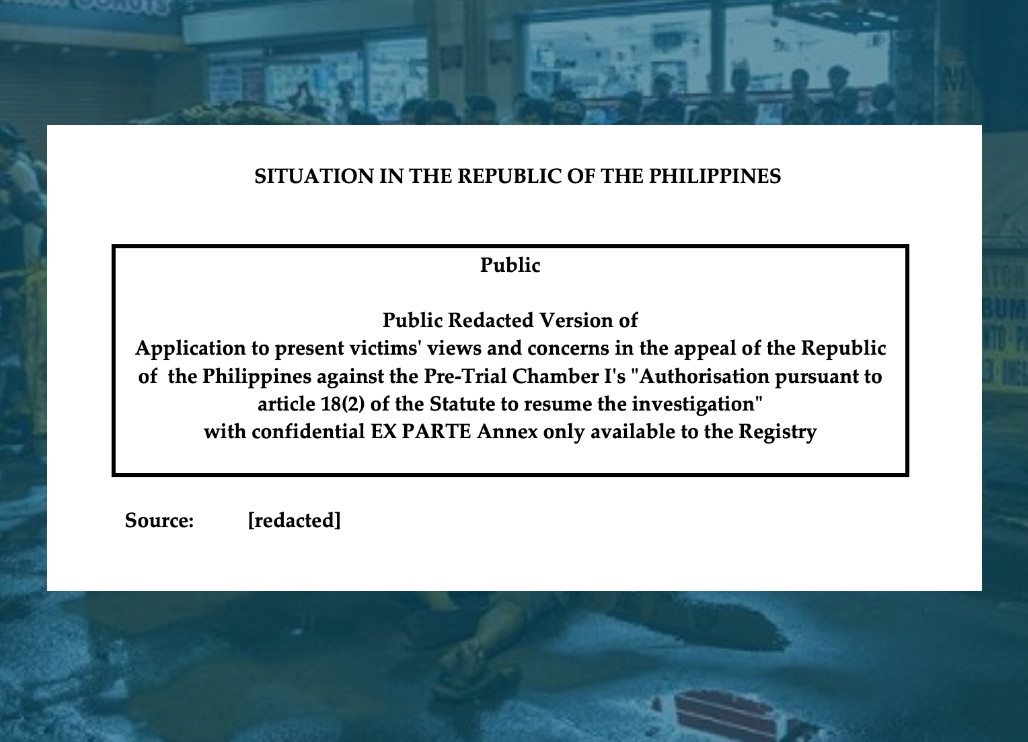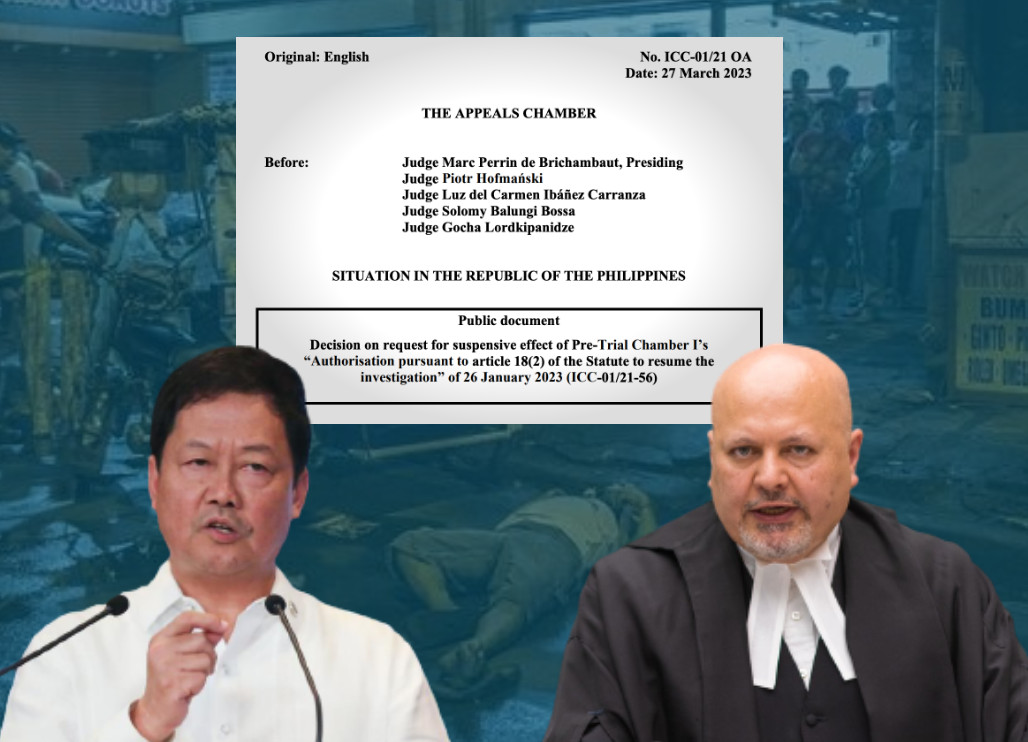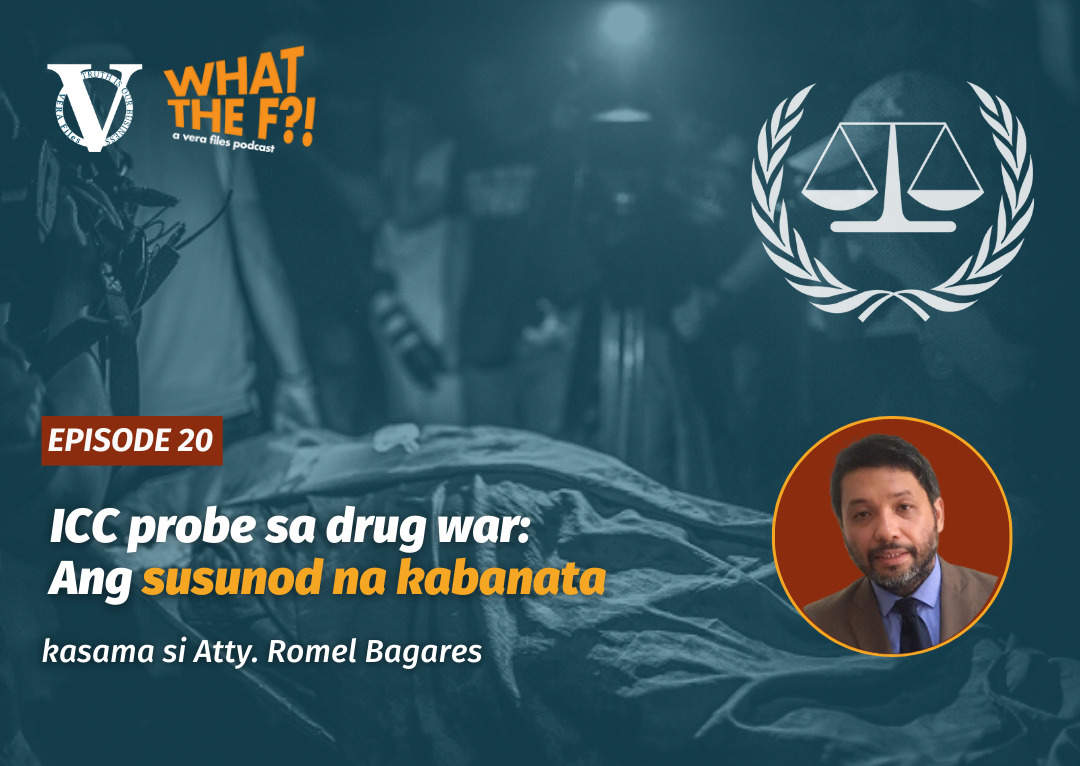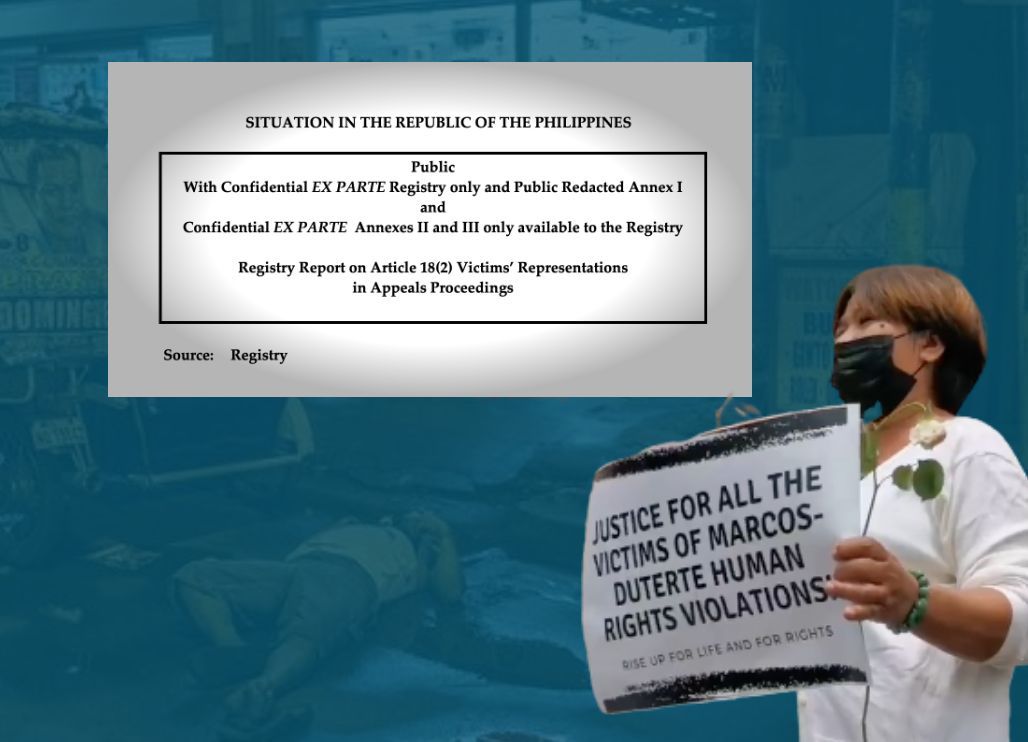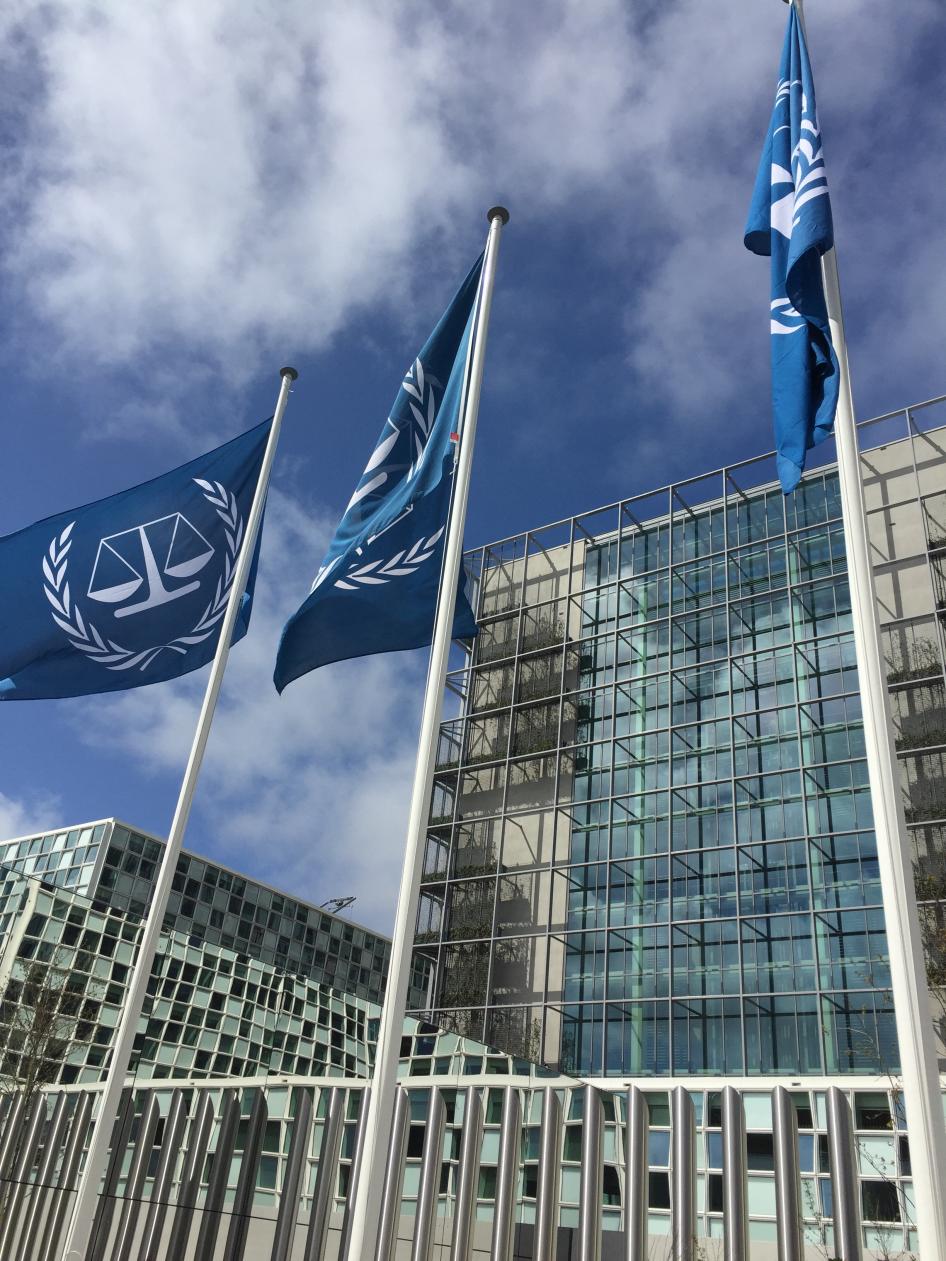February 14, 2019, Valentine’s Day, Nanette Castillo wrote a poignant Facebook shout out for her son Aldrin:
“501 days of missing my son Aldrin. I will miss him for the rest of my life. I love you Aldrin. Justice for Aldrin Castillo.”
Nanette is a fixture in rallies demanding for justice for victims in the government’s all-out war against drugs. Her 32-year-old only son was a victim of “mistaken identity,” according to the Commission on Human Rights (CHR).
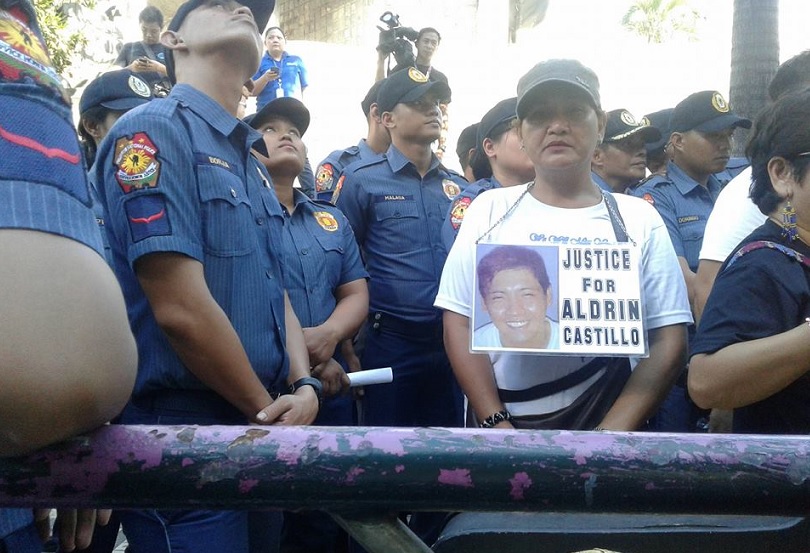
Nanette Castillo demanding justice for his son, Aldrin, in a rally. Photo from Castillo’s Facebook page.
Almost midnight of Oct. 2, 2017, Aldrin was about to cross Herbosa street in Tondo to buy brandy to drink with his friends when motorcycle-riding masked men, cut him off and shot him five times in the head, chest and cheeks using a caliber 45 and caliber 40.
“Hindi ako makaiyak noon. Galit ako. idinikit ko ulo ko sa dibdib niya, butas ang dibdib niya (I couldn’t cry back then. I was mad. I placed my head on his chest, his chest had holes),” Nanette said.
“Maka-nanay at malambing ang anak ko (My son is close to me and affectionate),” she said of her son. “Mahirap makalimutan ang nangyari sa anak ko (It is difficult to forget what happened to my son).”
Aldrin was not even on the drug-war watch list, Nanette said.
Time has not healed the wounds the death of Aldrin has inflicted on her. Known to be a fiery speaker at rallies, Nanette still cries at night for her son.
“Hindi lang nakikita ng iba na gabi-gabi, umiiyak pa rin ako para sa anak kong si Aldrin (Others just don’t see it. Every night I still cry for my son Aldrin),” she said.
Compounding the pain over the loss of a family member, the surviving relatives have to battle other forms of threats and viciousness. Nanette filed a complaint before the CHR although her husband and her sister were scared.
She has taken the role of being the “face” of the family’s quest for justice for Aldrin but she also fears for her family. “That’s why I don’t give photos or names of my family to the media that interviewed me,” she said, “Mahirap na (It’s hard).”
Nanette said there were three witnesses, one of whom claims he would recognize the one who shot Aldrin if presented to him. But they also have to protect them.
“Takot din kami na ilabas siya (witness) ngayon (We’re also afraid of identifying our witness now),” said Nanette, “Bata pa rin kasi (The witness is still young).”
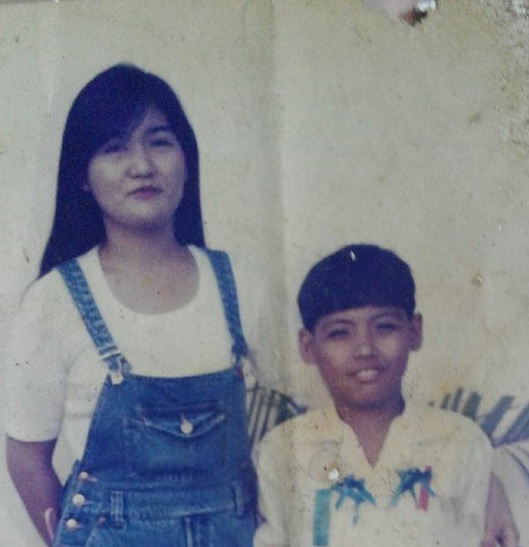
More than a year after Aldrin’s killing, it is still not in the police record, or the police has not given her an official written report, Nanette said. “Bulok na ang anak ko sa libingan, wala pa rin akong police record (My son’s body has completely decomposed in his grave, I still don’t have the police record),” she said.
She was asked by police to get the police report on her son’s death at 12 midnight.
“Pero natakot po akong pumunta sa police station sa ganoong oras (But I was afraid to go to the police station at that time),” she said, “may sikreto raw na kulungan ang istayon na iyon(there is an alleged secret cell in that station).”
Fear, poverty, and lack of support are the main obstacles for hundreds of families who want to file charges in court and seek justice for their departed loved ones but are unable to do so.
“Usually, the orphaned families are poor,” said Atty. Jackie de Guia, the CHR spokesperson. “The widow is usually hesitant to press charges because she has children and no one will take care of her kids, no fare money.”
In the three years of the war on drugs and thousands of killings, there has been only one conviction: the high-profile case of 17-year old Kian de los Santos, who was killed during a police anti-drug operation in Caloocan City.
The killing was caught on CCTV. The court sentenced the three policemen to 40 years each in prison.
De Guia said the Philippine National Police (PNP) is “hardly of any help up to now.”
In the PNP list, 5,104 have died in the anti-drug operations of the Duterte administration as of Dec. 31, 2018. Most victims were males, rendering thousands of women widowed and losing their sons and orphaned children.
“Either our husbands or sons die in the drug war that is why it is us women who are here,” said Nanette, who has become the spokesperson of mothers and widows during rallies against the drug war. These women have also learned how to interview and take down notes to help out in the documentation of drug-related killings in their communities.
De Guia said the CHR has 20 cases filed with the Ombudsman while the Department of Justice has 19 cases pending in court.
The National Union of People’s Lawyers (NUPL) is presently handling four cases, according to Atty. Kristina Conti.
“We prioritize murder charges to make police abusers and perpetrators accountable,” Conti said.
The Public Attorney’s Office (PAO) handled the Kian case. It is still pursuing the Carl Angelo Arnaiz killing, also involving the Caloocan police.
There are also some “Lazarus” cases being handled by the Free Legal Assistance Group (FLAG), according to Atty. Gregorio Viterbo Jr., the FLAG regional coordinator for Metro Manila.These involve victims of summary killings, who miraculously survived.
Viterbo said they are getting a lot of complaints these days. “People are getting bold,” he said, “but not all want to file cases, though.”
Even the lawyers handling the killings in the drug war are not being of the dangers. Already, 36 lawyers had been killed, Viterbo said noting,” That’s at least one death every month.”
“When the administration suspended ‘Operation Tokhang’ twice, the number walk-in complainants increased,” De Guia said. “When the drug war returned, the number of complainants decreased.”
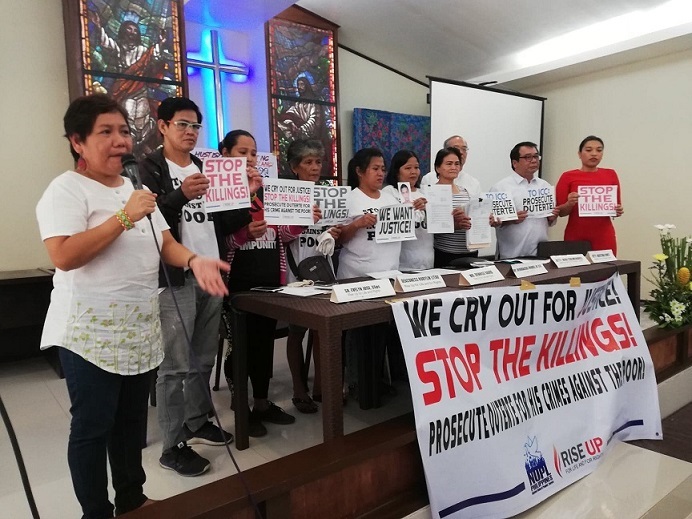
Relatives of the victims of Duterte’s drug war filed a case before the ICC.
Last year, in a bold move, seven complainants, who were mostly women, filed a case at the International Criminal Court (ICC) against President Duterte and all those involved in the Operation Tokhang,
Represented by NUPL, the complainants included two mothers and two sisters, a father, a widow and a human rights group, charging the president of the Philippines, Rodrigo Roa Duterte, “with committing crimes against humanity.”
Their complaint is one of the several filed with the ICC against Duterte, who ordered the withdrawal of the Philippines from the Rome Statute, the treaty that created the ICC.The withdrawal will take effect on March 17. However, the cases against Duterte filed before the withdrawal will continue.
Others who filed cases againstDuterte at the ICC include lawyer Jude Sabio, MagdaloRepresentative Gary Alejano and Sen. Antonio Trillanes IV.
There are times when they would ask each other if they will ever get justice for their slain family members with Duterte being in power for three more years.
Castillo’s daughter is hopeful but realistic.“Maghintay lang tayo Mama na bumaba si Duterte. Magsasalita din ang mga witnesses natin (Let’s just wait Mom for Duterte to step down. Our witnesses will eventually talk).”
